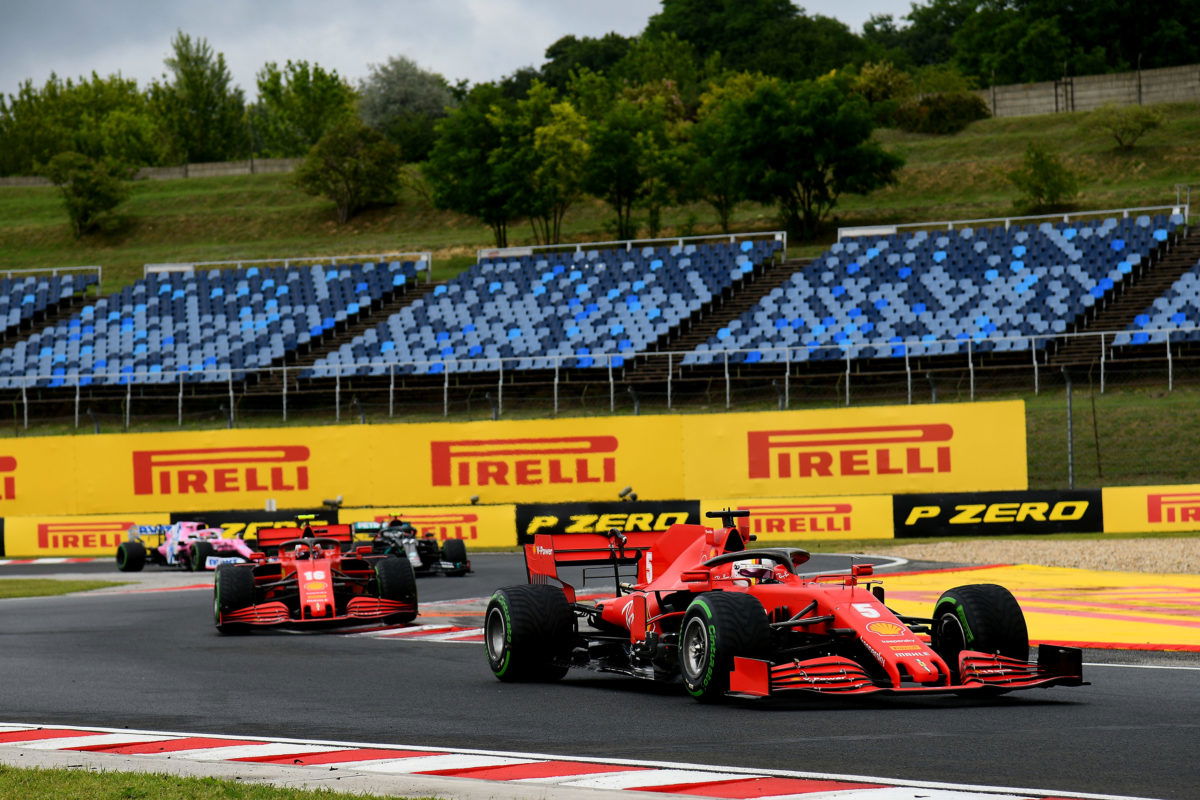

Ferrari chairman John Elkann does not expect his Formula 1 team to win again until 2022 after a poor start to the current season.
Scuderia Ferrari has struggled badly in the first three rounds of 2020, with just one fortunate podium finish out of a possible six, after experiencing difficulty also in pre-season testing.
Charles Leclerc is seventh in the drivers’ championship and Sebastian Vettel 10th, while the team is fifth in the constructors’ standings.
Exacerbating matters is a wide-ranging technical freeze in response to the impact of the COVID-19 pandemic which is likely to prolong Ferrari’s issues for another season at least.
Elkann concedes, therefore, that it is unlikely to be competitive again before 2022, when sweeping regulation changes will take effect.
“(Ferrari is going) through a difficult period that starts far back,” he told Italian sports newspaper La Gazzetto dello Sport.
“We have not won a constructors’ world championship since 2008 nor a drivers’ one since 2007.
“There has been Red Bull’s winning cycle thanks to aerodynamic capacity and then Mercedes for their great ability in hybrid engine technologies.
“This year we are not competitive thanks to project errors. We have had a number of structural weaknesses that have existed for some time in aerodynamics and in the dynamics of the vehicle. We have also lost out in engine power.
“The reality is that our car is not competitive. You saw it on the track and you will see it again.
“Today we are laying the foundations for being competitive and returning to winning when the rules change in 2022. I am convinced of this.”
The new technical ruleset was to have been implemented next year, but now even a large number of components are frozen from this year to the next.
A budget cap will also take effect next year and be gradually reduced over the years which follow.
Elkann affirmed that such decisions impact Ferrari “A lot, given that we have started off poorly,” but supported the initiatives for the betterment of F1.
“We must be realistic and aware of the structural weaknesses with which we have been living for a decade, and which the transition to hybrid (power units) has underlined,” he added.
“We have given the okay to the new rules that will start from 2022, because we believe it is right that there is greater competitiveness within F1.
“We do not see the limitation of budget caps as a constraint on our ability to win. We take it as a challenge.
“Our engineers, our mechanics and our drivers will find strength and creativity within those bonds to bring Ferrari back up. Personally, I have never seen in the last 10 years such a cohesive and strong spirit.”
Team Principal Mattia Binotto restructured Ferrari’s technical department following another lacklustre showing in Hungary, last time out.
The changes resulted in no dismissals, however, and Elkann says that he also has “Total trust” in Binotto himself.
“Mattia Binotto, who has taken the helm of the Scuderia for a year, has all the skills and characteristics to start a new winning cycle,” stated Elkann.
“He was in Ferrari with (former Team Principal Jean) Todt and Schumi (Michael Schumacher).
“He knows how to win and from next year he will work with two drivers who are young and ambitious like us.”
Elkann also acknowledged the frustration of the team’s fans, to whom he said it is important to be upfront about the challenge.
“The fans are suffering as much as we are, but we know they are close to us,” he said.
“This is why it is important to be clear and honest with them. A long path awaits us.
“When Todt opened that historic cycle (five consecutive titles) in 2000, we came from a fast that had lasted for over 20 years from 1979.
“It took time from him landing in Maranello in 1993 to Ferrari’s return to success.
“The important thing then is to work on the track and off the track, in a cohesive way, building the Ferrari we want to step-by-step.”
Charles Leclerc is contracted to drive for Ferrari through to the end of 2024 while Carlos Sainz will take over the seat currently occupied by Sebastian Vettel next year.





















Discussion about this post